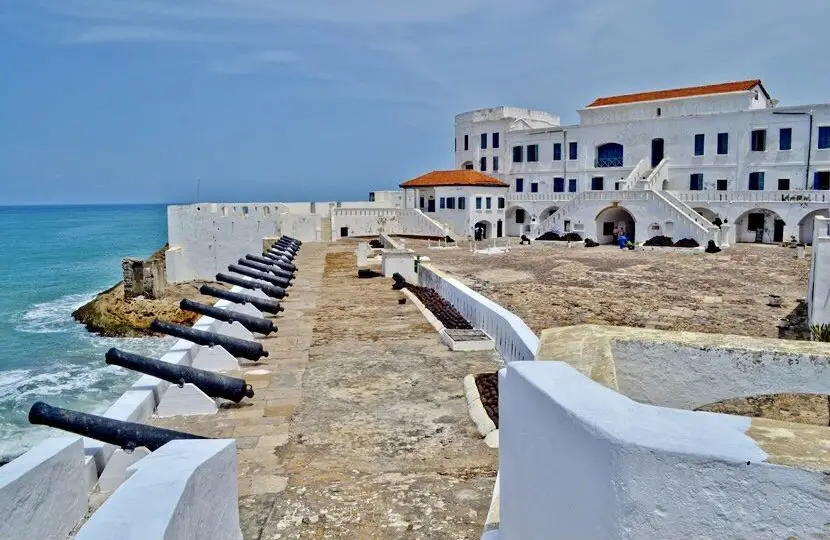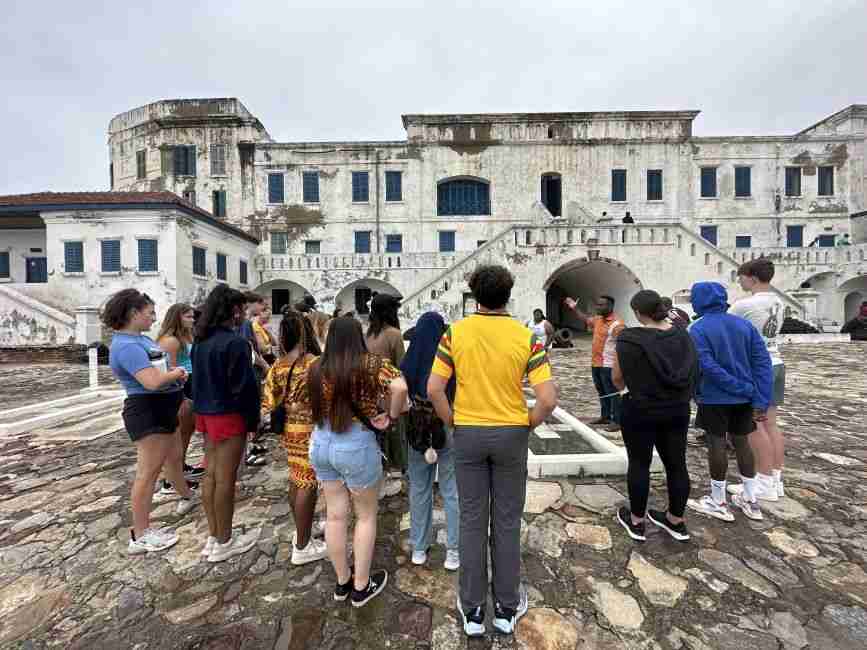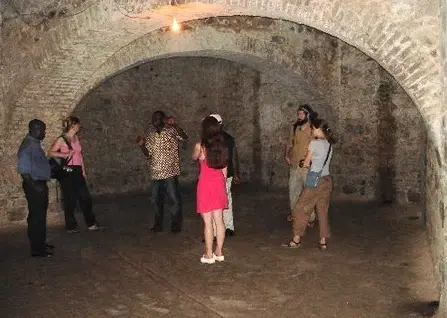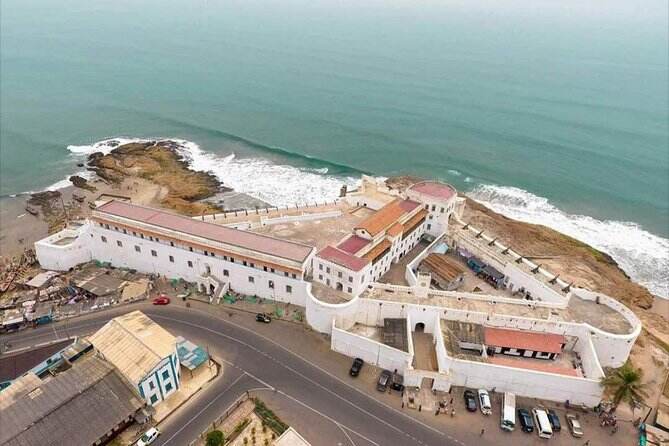
01
JanTowering over the Ghanaian coast, Cape Coast Castle stands as a powerful symbol of the country's rich and complex history. Its story unfolds over centuries, encompassing trade, colonization, and the fight for freedom.
Early Beginnings: A Hub of Commerce (1650-1750)
1650: The Swedes began construction of the Cape Coast Castle, initially named Carolusburg.
1652: The Dutch captured the fort, renaming it "Fort Coenraadsburg."
1750: After years of conflict, the British seized the fort, rechristening it "Cape Coast Castle."
Trade Flourishes: The castle served as a crucial trading post, primarily for gold and enslaved Africans. European goods were exchanged for these commodities, establishing the region as a significant commercial center.
A Dark Chapter: The Transatlantic Slave Trade (1750-1807)

1750-1807: Cape Coast Castle became a major center in the transatlantic slave trade.
Captive Holding: Thousands of Africans were held captive in the castle's dungeons, enduring horrific conditions before their forced journey across the Atlantic.
Door of No Return: This symbolic doorway served as a harrowing reminder of the captives' stolen freedom and the beginning of an unimaginable experience.
Shifting Powers and the Abolition Movement (1807-1957)

1807: The British abolished the slave trade, leading to a decline in Cape Coast Castle's prominence in this aspect.
1822: The British used the castle as a headquarters for the West Africa Squadron, patrolling the coast to suppress the illegal slave trade.
1957: Ghana gained independence, and Cape Coast Castle became a national monument.
A Legacy of Remembrance and Education (Present Day)

UNESCO World Heritage Site: Cape Coast Castle was inscribed as a UNESCO World Heritage Site in 1979 for its cultural and historical significance.
Museum and Memorial: Today, the castle serves as a museum and memorial, educating visitors about the transatlantic slave trade, its lasting impact, and the fight for freedom.
Symbol of Resilience: Cape Coast Castle stands as a poignant reminder of a dark past, serving as a crucial site for remembrance, education, and inspiring reflection on the fight for human rights.
Visiting Cape Coast Castle:
Cape Coast Castle is a significant landmark in Ghana, offering visitors a chance to delve into the country's complex history. If you're planning a visit, here's what you can expect:
Guided Tours: Explore the castle with knowledgeable guides who share insights into its history and significance.
Exhibits: Explore permanent and temporary exhibits that delve deeper into the slave trade, its impact, and the stories of the individuals who were forced through its walls.
Memorialization: Pay your respects at various memorials dedicated to the victims of the slave trade.
Plan your visit to Cape Coast Castle today and embark on a journey through history, fostering remembrance, education, and a commitment to a more just future.

Book a tour
Unearth Ghana's powerful history on a poignant tour of Cape Coast Castle, a UNESCO World Heritage Site and a haunting reminder of the slave trade.
Recent Post

Diam lorem dolore justo eirmod lorem dolore
Jan 01, 2050
Diam lorem dolore justo eirmod lorem dolore
Jan 01, 2050